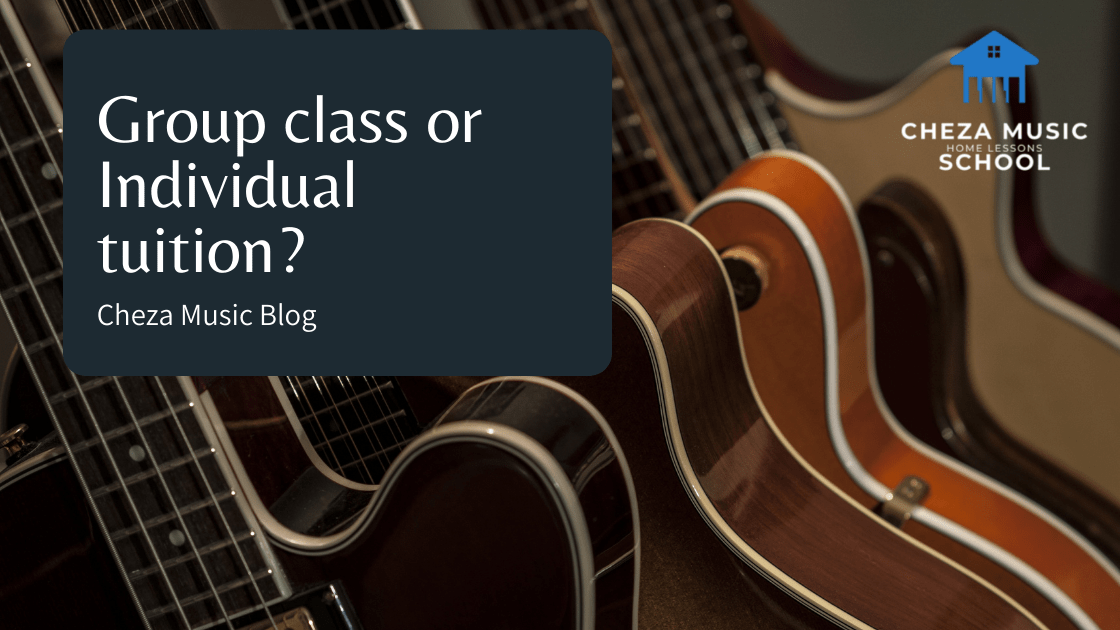The decision between group and individual music lessons is a crucial one that every aspiring musician, or parent of a young learner, inevitably faces. The benefits of learning to play a musical instrument are well-documented, encompassing both intrinsic growth in musical skills, knowledge, and understanding, as well as extrinsic contributions to various life skills.
While individual lessons provide the comfort of undivided attention and the flexibility to progress at one's own pace, group lessons introduce an element of shared experiences and, sometimes, the pressure of keeping up with a group's rhythm.
This article aims to shed light on the often-underestimated advantages of group music lessons, demonstrating that, although less popular, they can be the superior choice for you or your child.
Is It About Saving Money?
Group lessons are typically more cost-effective than individual tuition. This affordability arises from the shared cost of instruction. However, it's essential to view group lessons not merely as a budget-friendly alternative but as an opportunity to explore and embrace their unique advantages fully.
Is It About Having Too Many Students?
In some instances, schools resort to group lessons due to surges in enrollment, leading to space constraints and an excessive number of students for teachers to handle individually. However, this practice can be problematic if teachers lack experience in group instruction, leaving students in potentially frustrating experimental situations.
So, why should you consider group lessons?
1. Familiarity:
Human activities, particularly skill-based ones, often occur in group settings. Whether in team sports, club memberships, or musical ensembles, we humans are accustomed to working collectively, sharing common learning objectives. Given that one-on-one educational encounters are relatively rare in typical learning environments, it's natural to learn a musical instrument in a group class.
2. Interaction:
Group classes foster extensive interaction. Students engage with both their peers and the instructor, offering valuable mutual support as the lessons progress. In cases where a student might remain reticent in understanding a concept, group dynamics often prompt someone to seek clarification from the teacher or a fellow student.
Peer interactions create an enjoyable learning atmosphere. Encouraged by the teacher, students working collaboratively provide a powerful support system absent in individual tuition settings.
In certain situations, students may better comprehend a teacher's instruction when explained by a peer. From the learner's perspective, a fellow student can demonstrate the feasibility of mastering a technique more convincingly than an experienced teacher, as they share similar attributes like hand size, strength challenges, coordination difficulties, and more.
3. Relationship:
The relationship between teacher and student is paramount in individual tuition. Unfortunately, many students have abandoned lessons due to their dissatisfaction with the teacher. It's rare for students to drop out of a group class primarily because they dislike the teacher.
In individual tuition, two extremes often exist: excessive chatting in the case of a positive teacher-student relationship or limited personal interaction in the case of a less favorable connection, leading to a student's reluctance to continue.
The role of the teacher in a group setting differs, and student success doesn't hinge solely on their relationship with the teacher. Personality clashes are minimized, and learning tends to proceed more positively.
4. Exposure:
Group lessons offer an excellent platform for students already proficient in playing an instrument to explore ensemble playing. This setting enables students to compare their skills with others, ultimately improving their performance by addressing their weaker areas.
Participating in group lessons better prepares students for ensemble music experiences, such as bands or orchestras. In contrast, students who exclusively undergo individual tuition may find it challenging to adapt their skills to a group setting. Therefore, group lessons can complement individual tuition, ensuring students gain the necessary skills.
The Versatility of Cheza Music School
At Cheza Music School, we understand that every learner is unique. That's why we offer both group lessons for institutions and one-on-one lessons in the comfort of people's homes. We believe in providing tailored music education that suits your individual needs.
Explore Group Lessons with Cheza Music School
Cheza Music School provides group lessons for nearly every instrument in our catalog. For more information or to inquire about our offerings, please contact us at 0711 832 933 or visit our website at https://chezamusicschool.co.ke
